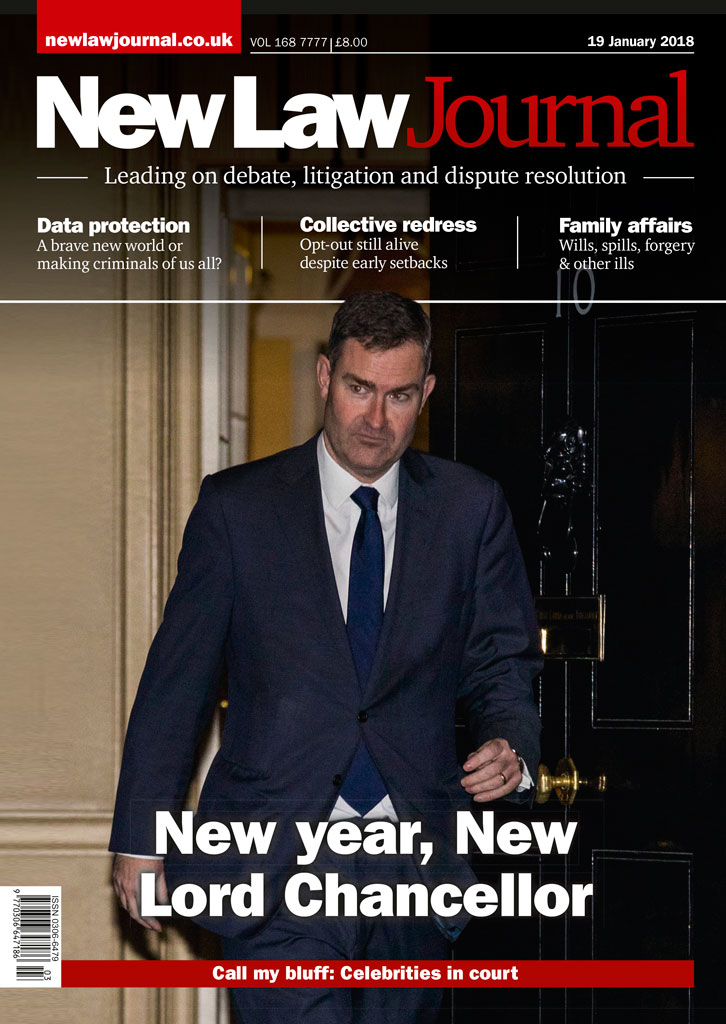
Will proposed offences in the Data Protection Bill make criminals of us all? Stewart Duffy investigates
Are unconventional methods of will making about to become our everyday reality? Monika Byrska considers the options
Geoffrey Bindman explains why deceiving the court is not a good idea
A recent decision on billing comes under fire for generating unacceptable confusion
Nicholas Dobson explores the reasons why Wireless Festival 2016 was a lawfully held event
It’s been one problem after another so far, but Chris Owen remains optimistic about the future for collective redress
It’s a family affair: Constance McDonnell presents a review of key contentious probate cases
David Greene hopes David Gauke is allowed to stay in the role long enough to make a difference
MOVERS & SHAKERS

NLJ Career Profile: Ken Fowlie, Stowe Family Law
Ken Fowlie, chairman of Stowe Family Law, reflects on more than 30 years in legal services after ‘falling into law’

Jackson Lees Group—Jannina Barker, Laura Beattie & Catherine McCrindle
Firm promotes senior associate and team leader as wills, trusts and probate team expands

Asserson—Michael Francos-Downs
Manchester real estate finance practice welcomes legal director







